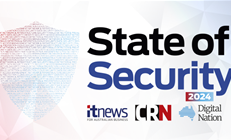Home Affairs says its staff’s seven-odd months of experimentation with ChatGPT were of a “general curiosity” nature, but that the tool wasn’t used to write production code or make decisions.

The department placed a block on internal use of ChatGPT in May, although the tool had been usable in some circumstances since November last year.
After the suspension of access was announced, the department’s IT function issued a questionnaire to staff seeking to understand how ChatGPT had been used.
The results of the questionnaire, released under freedom of information to The Guardian last month, showed some experiments sought to test ChatGPT’s coding and debugging capabilities.
That prompted a series of questions from Greens Senator David Shoebridge at a senate hearing late last month [pdf], where he sought specifics on code-related uses of ChatGPT before the tool’s use was suspended.
Written responses [pdf and pdf], filed this month, say that staff essentially just prompted ChatGPT to see what it could do, but not for any production purpose.
“The topics researched on [ChatGPT] were related to general curiosity regarding the … technology, technical background research and troubleshooting, and for personal awareness,” the department said.
“No specific codes and/or scripts were produced and/or uploaded into departmental systems as a result of these ChatGPT queries.”
It added that “any reference to ‘scripts’ and/or ‘code’” in the questionnaire responses released under freedom of information “was generic and questioning in nature, for staff [to] understand the operation of the technology.”
Further, the department said that “there is no evidence that any staff member used ChatGPT to make a formal decision on behalf of the department”, or “that departmental or classified information was included as part of a ChatGPT search.”
Home Affairs also addressed criticism from Shoebridge that no formal register of prompts entered into ChatGPT had been kept during the experimentation period.
Shoebridge was critical of the department using a questionnaire to seek staff recollections of their use of ChatGPT, potentially long after they’d used it, rather than to keep records.
But in its written response, Home Affairs said that experimental ChatGPT prompts did not meet the threshold to be considered a “record”.
“A Google or ChatGPT search is not considered a business record, unless it directly impacts or influences a decision made by a public servant,” the department said, adding “there is no evidence” that occurred.




.png&h=140&w=231&c=1&s=0) Tech in Gov 2024
Tech in Gov 2024
















